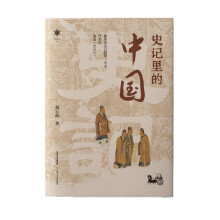《格洛丽亚·内勒小说中的乌托邦思想研究》:
The dire relationship between man andman is also reflected in the indifferent neighborly relationship. Dr. Braithwaite is the historian of Linden Hills who writes new black history books with the material provided by the Nedeed. His rationalism is shown in his single-minded pursuit of objective knowledge and craving for Nobel Prize. He compiles eleven volumes about the history of Linden Hills, and by the time he creates volume six, he detects that there is a drastic change in the goal of the community, and that his studies are actually amounting to the record of a people who are lost. But he neither moans the
tragic fact nor warns the people but continues to compile the data and crystallize his own exclusive observations in the hope to be considered for Nobel Prize. Although he knows that the destruction of Linden Hills is inevitable, which has already been predicted in his works, he continues to play the role of a detached observer. In her interview with Kay Bonetti, Naylor mentions Braithwaite in this way, "His role is that he has turned his back on true knowledge. He does not warn the people of their perversity because of his own personal ambition. So he's just simply a recorder who does nothing with his knowledge. He just simply takes che knowledge in for the sake of knowledge."(Bonetti, 1997: 46-47) Instead of warning his neighbors of their situation, Dr. Braithwaite only cares for his own ambitions. Another outstanding instance that verifies the indifferent neighborly relationship is that after the Nedeed's house catches fire, while Lester and Willie try to rescue the couple from the fire, the rest of the residents just "let it burn" (LH 304) until the house becomes a pile of ruins.
The intentional erasure of nature from people's life, hence the severance of man from na-ture is the third trait of the unfavorable or negative aspect of rationalism. Nature has regenerative power and being close to plant and animal life-trees, gardens, birds, wildlife-has always been recuperative for people, for which any worthwhile suburb should preserve elements of nature so that individuals can invigorate themselves. In Linden Hills, however, nature has gradually been re-placed by artificial things, like the man-made lake surrounding Nedeeds' house. People are discon-nected from nature by destroying the natural things in Linden Hills. Daniel Braithwaite kills the willow trees that block his views so that he can have a good observar:ion of the uphill households for his research. rlhe gnarled and desiccated willows, whose branches trail the ground like bleached skeletal fingers in front of Braithwaite's house, register Linden Hills as a landscape of the dead,thus pointing to the sterile life in this suburban community.
In short, the residents of Linden Hills, in their rationally determined pursuit of material wealth and upward mobility, choose to follow rationalism, thus renounce their history, forget their past and in so doing turn away from their inner sense of self, which, in succession, leads to the al-ienation and estrangement between man and his self, man and man, and man and nature. Utopia should be thought of as a society in which radical evils have been eradicated and human desires are satisfied to the fullest degree possible and a society in which the problem of pain is solved in some measure by the doctrine of higher pleasures. But the people in the novel are far removed from en-
joyment and pleasure. The satisfaction of needs which requires continuing the rat race of catching up with one's peers and with planned obsolescence turns themselves into one-dimensional men.Their keen materialistic sensibilities dominated by rationalism render Linden Hills Satanic and
dystopian, and cause it to descend from an all-black suburban utopia to a dystopia.
……
展开










